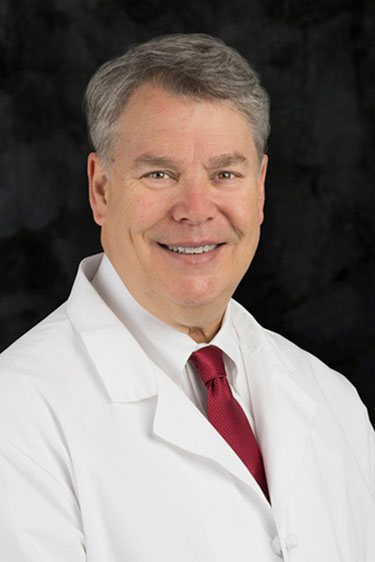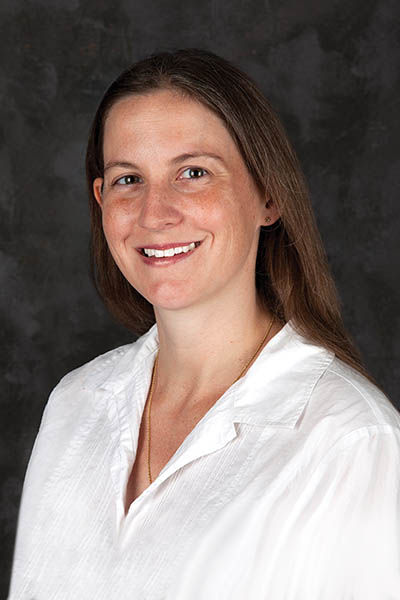Beaufort Memorial to Renovate, Expand Surgical Pavilion
June 21, 2022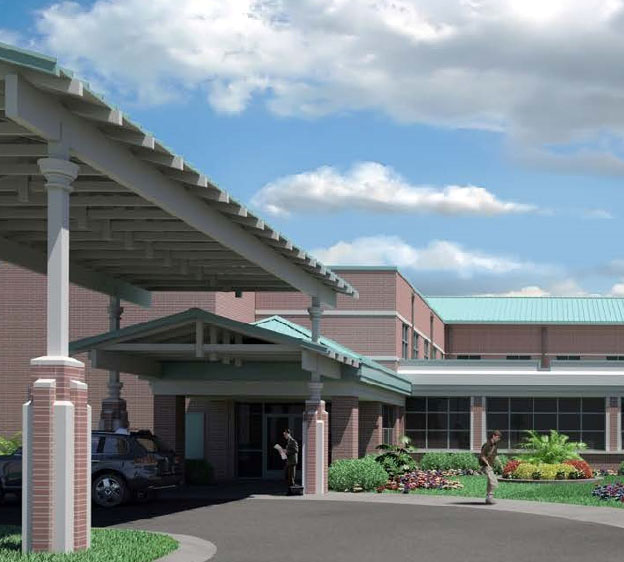
Beaufort Memorial Hospital (BMH) will begin this fall a multi-million dollar renovation and expansion of its Surgical Pavilion at 955 Ribaut Road in Beaufort.
The project will include the addition of two state-of-the-art surgical suites to accommodate the growing demand for advanced procedures, enlarge existing suites to optimize the surgical process and attract top physicians.
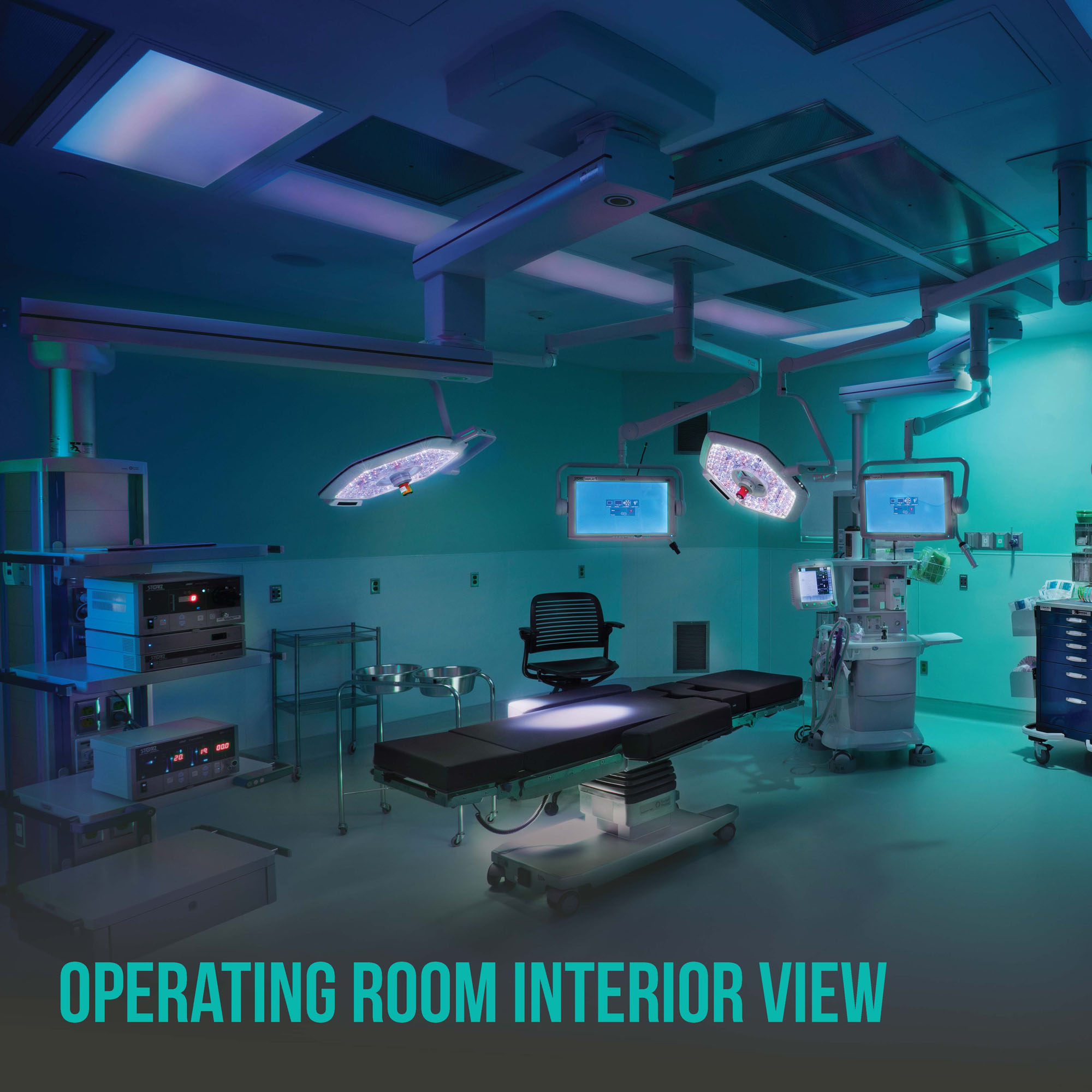
“We are all very excited to get this critically important project underway for our patients, surgeons and our growing community,” said BMH President and CEO Russell Baxley, MHA. “Modernizing and expanding our facilities will allow us to serve more patients more efficiently, and offer new and innovative procedures closer to home.”
As part of the improvements, the hospital recently installed the latest da Vinci XI Surgical System, giving surgeons improved visibility and even greater precision when performing the more than a dozen minimally invasive surgical procedures with robotic assistance. Beaufort Memorial Hospital was the first healthcare provider in the area to perform hysterectomies using the da Vinci Surgical System over 15 years ago.
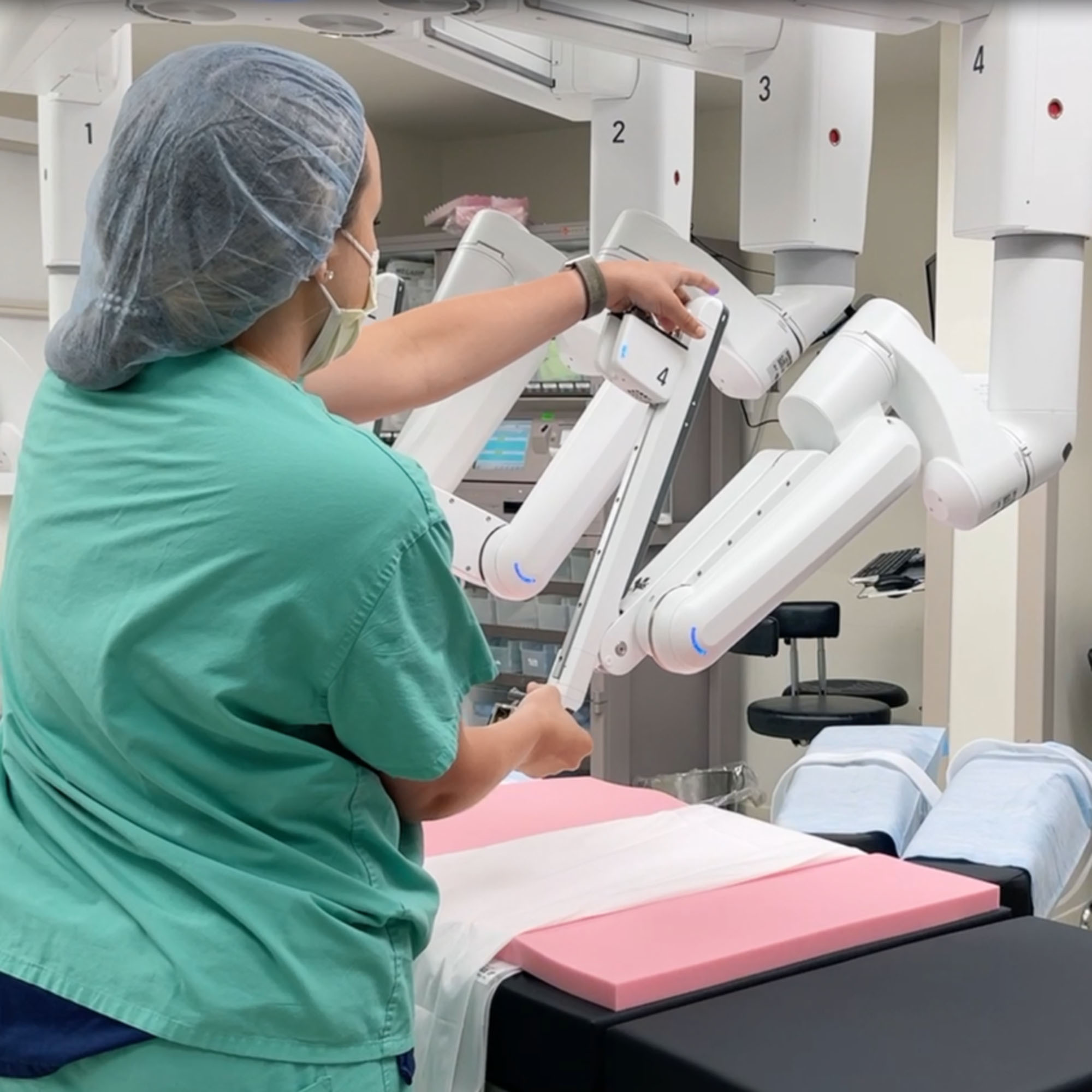
“The dexterity and visualization the new daVinci XI provides gives me the ability to perform complex surgeries more precisely than ever before,” said board-certified General Surgeon Dr. Deanna Mansker, who performed the hospital’s first surgery using the new robot. “Beaufort Memorial’s commitment to this project and continuing to be on the cutting-edge of robotic-assisted surgery will lead to better outcomes for our patients.”
One of only four South Carolina hospitals with advanced certification for hip and knee replacement from The Joint Commission, Beaufort Memorial also recently added a second cutting-edge Mako SmartRobotics™ Surgery System for joint replacement. This technology allows orthopedic surgeons to create a surgical plan unique to a patient’s anatomy, and then use the robotic arm to implant the components with greater precision, leading to better function and more natural movement.
Surgeons are excited for the improved surgical area, as well as additional space for continuing innovation. This, alongside new technology, will assist in better accuracy and precision during surgical procedures.
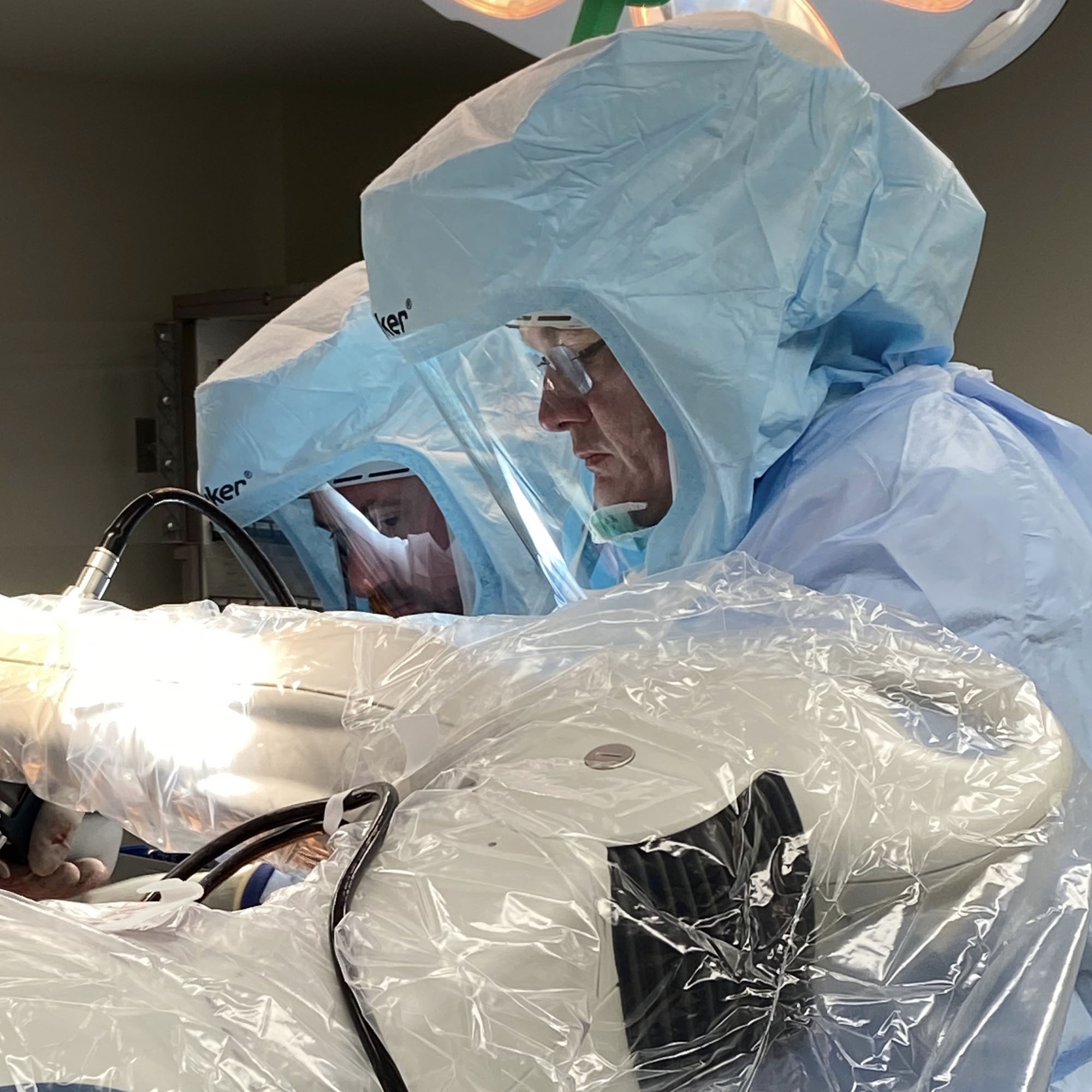
The last major operating room renovation was nearly 30 years ago. Hospital officials began planning this project in 2018, working with the medical staff and architects to identify the space, technology and equipment needs to meet the area’s current and growing surgical demands.
“For many patients, the OR is a crucial step in the process toward mobility, healing and a better quality of life,” said Dr. Chad Tober, a board-certified vascular surgeon at Beaufort Memorial. “As a surgeon and longtime Beaufort County resident, I am both excited about and grateful for the bright future for surgical care in our community.”
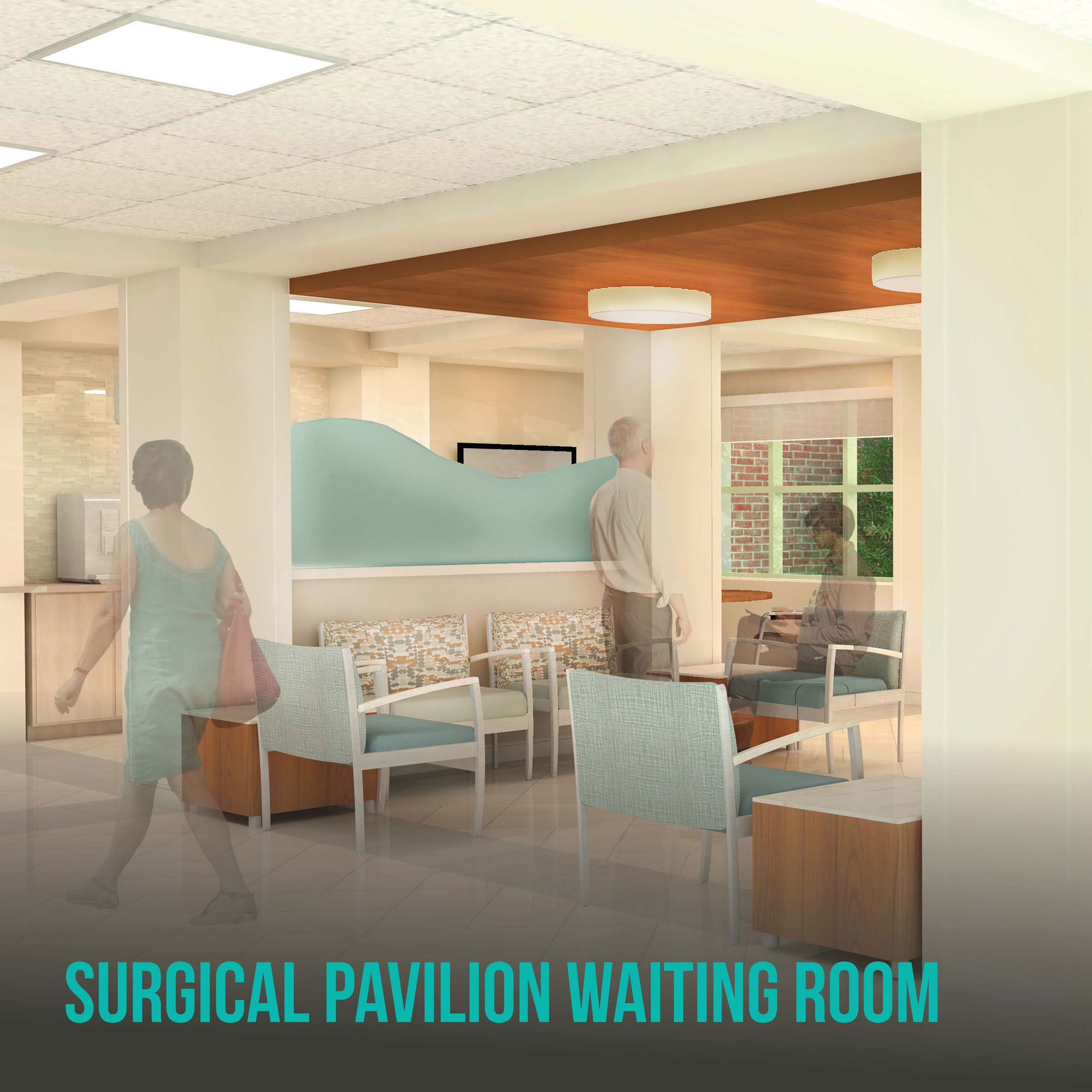
This spring, the hospital received notice that approximately $18 million in federal funds were earmarked for the project, part of the Omnibus Bill passed to provide support for critical infrastructure projects throughout the nation, including more than $150 million in funds for Beaufort County. U.S. Senator Lindsey Graham championed the proposals submitted on behalf of Beaufort Memorial Hospital, as well as the Marine Corps Air Station and Marine Corps Recruit Depot.
The BMH Foundation, the fundraising arm of the not-for-profit hospital, began working with donors to solicit donations for the multi-million dollar effort shortly after planning started in 2018. The $4.3 million raised by the Foundation, including more than $1 million earmarked proceeds from its annual Valentine Ball, will cover most of the increase seen in construction costs since the project was submitted through the state’s certificate of need (CON) application process.
The hospital’s CON application for the project was approved by the South Carolina Department of Health and Environmental Control (SCDHEC) in March 2022. The final application to receive the Omnibus Bill funding was completed in May 2022. The project will occur in several phases and is expected to be completed in two to three years.

